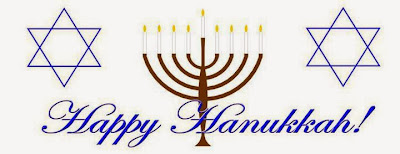The Feast of Tabernacles is an eight-day celebration every fall. This year it is from Oct. 4 (at sunset) through Oct. 12 (at sunset). It is also called Sukkot, which is a Hebrew word referring to the temporary dwellings the Israelites lived in on their way to the Promised Land (sukkah is the singular form). During this time of the year, the Jewish people build a sukkah and rejoice.
The Feast of Tabernacles has past and future meanings for believers in Christ. First of all, Jesus came down to earth and lived in a tabernacle! "And the Word became flesh and dwelt among us, and we saw His glory, the glory as the only Son of the Father, full of grace and truth" (John 1:14). The Greek word translated as "taberna" is skenoo, and it can also refer to the sukkah. Christ came down and dwelt in a human body so that humanity could have fellowship with God. Jesus actually celebrated this festival while He was on earth (see John 7).
This festival also has a prophetic meaning. During the Feast of Tabernacles, we also celebrate with expectation the coming millennial reign of Jesus on earth! "Blessed and holy is he who takes part in the first resurrection. Over these the second death has no power, but they shall be priests of God and of Christ and shall reign with Him a thousand years" (Rev. 20:6). Micah 4:1-4 tells us more about this glorious time:
Then it will be that in the latter days, the mountain of the house of the Lord will be established as head of the mountains, and will be lifted up above the hills; and people will stream to it. And many nations will come and say, "Come, that we might go up to the mountain of the Lord, and to the house of the God of Jacob, that He might teach us His ways, and that we might walk in His paths." For from Zion will go forth the law, and the word of the Lord from Jerusalem. Then He will judge between many peoples and mediate for mighty nations far and wide; they will beat their swords into plowshares, and their spears into pruning hooks. Nation will not take up sword against nation, and they will no longer train for war. Then each man will sit under his vine and under his fig tree, and no one will make them afraid; for the mouth of the Lord of Hosts has spoken (Mic. 4:1-4).
Micah 4:2 says that the Law will go out from Zion and the word of the Lord from Jerusalem. Zion is the church (see Heb. 12:22-24). This shows us that the kingdom of God will be ruled by spiritual authority (Zion) based from a physical location (Jerusalem). These verses go on to say that many nations will come and ask you and me (His children) to teach them God's ways.
Once Satan is removed from earth, which is the final prophetic fulfillment of atonement, then the whole world will have a desire for God's ways (see also Isa. 2:1-5). In Micah 4:3, the Lord mentions how we will settle disputes for many nations. The nations of the world are going to see peaceful mediation as a more attractive alternative than going to war. They will beat their swords into plowshares. There will be no standing armies in the millennium!
Every person will have their own vine and fig tree. In other words, every person will be provided for. The millennial reign of Christ will be the greatest time of prosperity that has ever existed on planet Earth. No one will have the thought to try to take from someone else because everyone will have plenty! There will be no fear that someone else will take from you, and no fear that you will be taken from. A world without fear—imagine that! Satan will not be there to stir strife between mankind.
These are wonderful prophecies from God for us to meditate on during this joyous time of the year. Happy Feast of Tabernacles! 
Kelly McDonald Jr. is an ordained evangelist at Hungry Hearts Ministries in Jackson, Tennessee. He has written over 40 books and booklets on pursing Christ, Hebrew roots and end-times prophecy. He is currently president of the Bible Sabbath Association (BSA). You can follow him at kellymcdonaldjr.com.
Readers are Leaders! Subscribe now and get 3 magazines for the price of 1. Get Charisma, Ministry Today and SpiritLed Woman all for $24. YES - Sign me up!
3 Reasons Why you should read Life in the Spirit. 1) Get to know the Holy Spirit. 2) Learn to enter God's presence 3) Hear God's voice clearly! Click here to draw closer to God!














